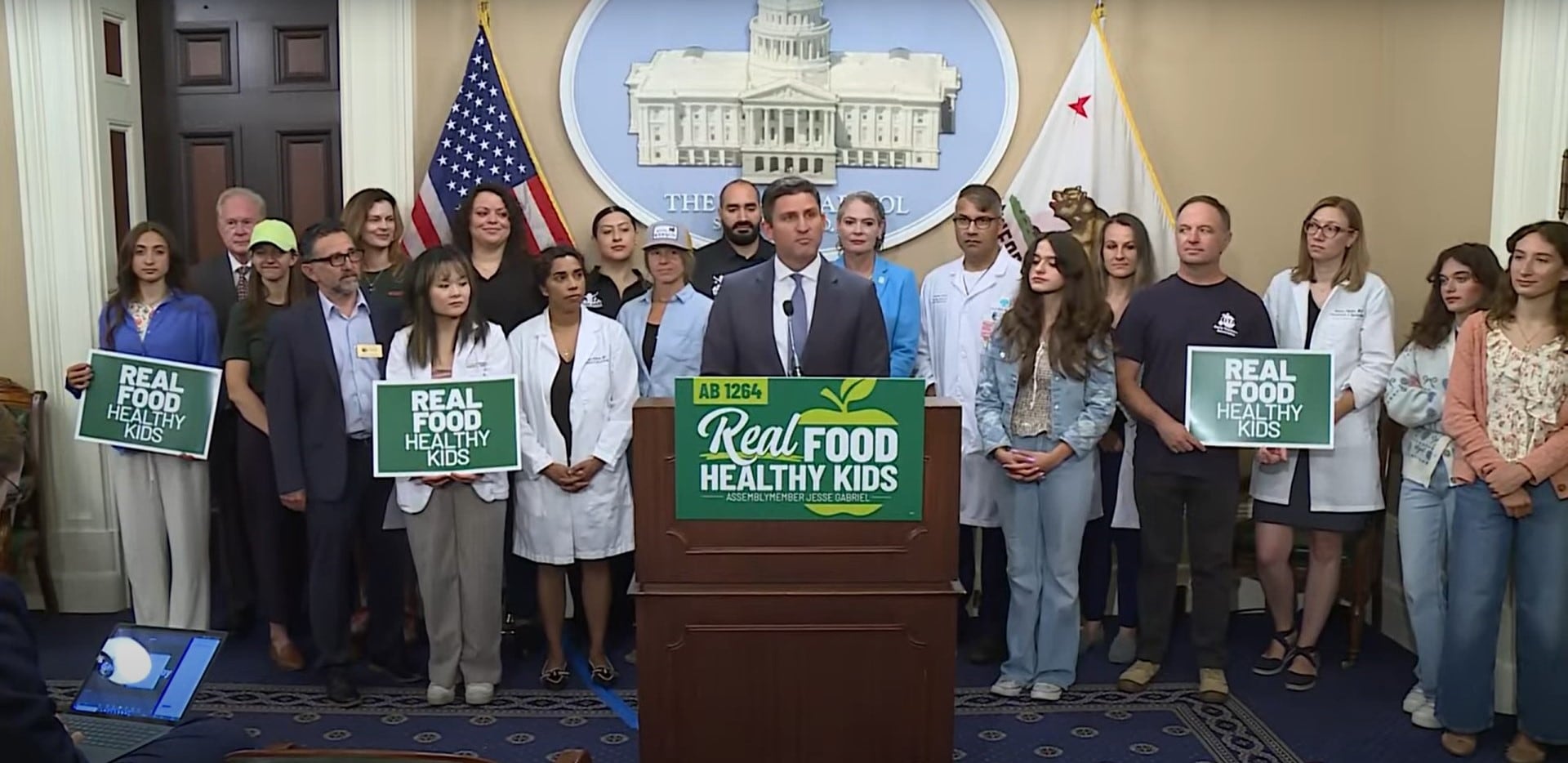California lawmakers approved AB 1264 with broad bipartisan support, advancing a first-in-the-nation effort to phase out ultra-processed foods from public school meals as the bill heads to Gov. Gavin Newsom’s desk, drawing applause and apprehension from industry players.
The bill will define ultra-processed foods based on “reputable peer-reviewed scientific evidence, a substance or group of substances are linked to health harms or adverse health consequences.” The California Department of Public Health has a June 1, 2028, deadline to adopt these regulations and schools must phase out UPFs no later than July 1, 2029, according to the bill.
The move comes amid FDA and USDA’s joint request for information (RFI) to develop a uniform definition of UPFs, announced in July. The deadline to comment in the federal register is Sept. 23. As of this reporting, the docket received 117 comments.
AB 1264 is spearheaded by Assemblymember Jesse Gabriel (D-Calif.) and co-authored by Republican Assemblymember James Gallagher (R-Calif.) and Progressive Caucus Chair Alex Lee (D-Calif.). The bill is supported by Consumer Reports, the Environmental Working Group and Eat Real.
The bill received support from some food safety experts, such as the National Farm to School Network, medical professionals and agriculture organizations like California Fresh Fruit Association.
Although the School Nutrition Association did not directly comment on AB 1264, it did issue a statement supporting the Make Our Children Healthy Again strategy to address UPFs from a “scientifically sound and operationally feasible” perspective for under-served schools.
“Schools simply lack the staff, equipment, infrastructure, time and critical funding to scratch prepare all menu options for students. Any federal restrictions on UPFs that affect school nutrition standards must consider these limitations and ensure that schools are permitted to serve nutrient-dense, pre-prepared foods. In addition, school meal programs require additional funding to successfully implement further menu changes,” it said.
In January, Gov. Newsom issued an executive order to address potential health harms from consuming UPFs and an investigation on food dyes.
Critics raise concern over unintentional inclusion of healthy foods and economic impact
One legal expert warned that AB 1264’s implementation in schools could “unintentionally” include California-grown products due to a lack of a uniform definition.
Crops like nuts and fruits (e.g. citrus, pistachios, walnuts and tomatoes) could be targeted under the bill because of common industry processing techniques like natural waxing to improve shelf life or flavor roasting. Banning these products could impact California’s agriculture economy, according to Louie Brown, a partner at Kahn, Soares & Conway in Sacramento, Calif.
“It’s the breadth of the definition of ultra-processed foods that is raising the concern of a variety of agricultural commodities around the state,” Brown said.
Roger Isom, president and CEO of Western Tree Nut Association in Fresno, Calif., pointed out that while the bill is well-intended, it also could adversely impact California’s confectionery and snack manufacturers, packaging, retail and distribution businesses, ultimately disrupting the state’s economy.
In an April op-ed in Civil Eats, Chef Dan Giusti, whose company supports chefs in school programs, noted that AB 1264 “looks like a positive change” but “is actually quite complicated.”
Giusti cited the need for more support for schools and their kitchen staff to successfully implement changes. Without the proper resources, schools run the risk of creating more waste due to unappetizing foods, he argued.
The National School Lunch Program, which is a voluntary but widely adopted framework, requires more fruits, vegetables and whole grains while limiting sodium and saturated fat. But the rules also created hurdles, with kitchen staff facing what Giusti described as “intimidating guidelines,” from tracking the nutrition content of every dish to monitoring sodium, fat, calories and even vegetable variety, adding “an extra administrative burden.”
“Eliminating UPFs from school food would require a massive adjustment within programs as they figure out how to reconfigure menus and kitchens and staffing, too,” he added.




